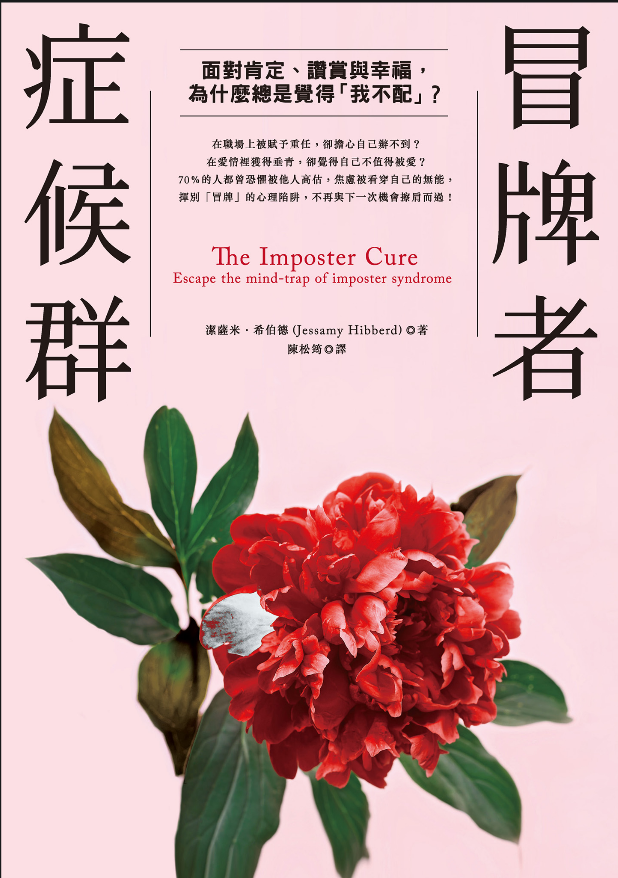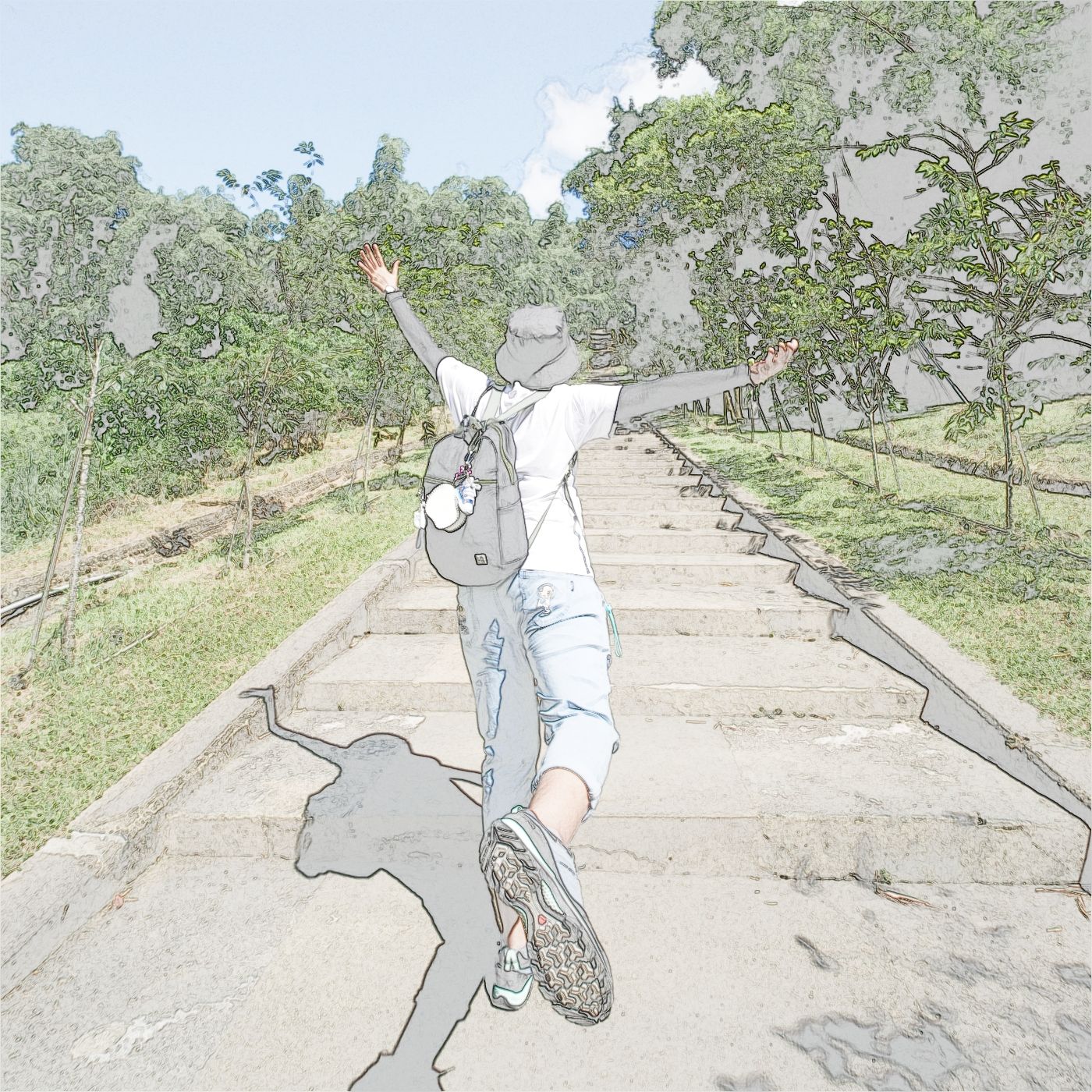
《喂喂你還好不好》:一個現役憂鬱症患者的日常 Podcast https://open.firstory.me/user/wwhowbuhow/platforms Podcast 創作者、製作人、製作教學 創作日常反思和閒聊在 Liker.social 象特
The voice of "I don't deserve it" lingers in my head - "Impostor Syndrome"
This episode Podcast single episode universal listening link
This time I want to talk about the subtitle of the book "Impostor Syndrome": In the face of affirmation, appreciation and happiness, why do you always feel that "I don't deserve it"?
The Imposter Cure: Escape the mind-trap of imposter syndrome
Taiwan version cover design concept:
"Those who suffer from 'Impostor Syndrome' are obviously bright and dazzling on the outside,
But the heart is anxious and struggling with constant self-doubt, like bright red flowers with drooping leaves. "
Some people are triggered anytime, anywhere, and some people are triggered only in specific situations. The context behind is very complex, or the symptoms are also various.
The author says:
"May be insecurities, self-doubt, fear of failure, and perfectionism;
It could also be self-criticism, low self-esteem, inability to accept compliments, or focusing on your own weaknesses.
It warns us not to be arrogant, and it gives ourselves a safety net "in case things do go wrong." "
Does this sentence make you feel like you're hitting arrows all the time?
I every sentence. All. middle.
Some studies estimate that 70% of people have had similar emotional experiences. Some scholars have especially noticed this situation in high-achieving women. Well... Focusing on the gender of women, I think there should be other contexts and topics to discuss with me. My own small observation is that this situation should be gender-neutral, especially in this generation of super-fast information iteration
The author Jessamy Hibberd is an expert in cognitive behavioral therapy, that is, the thinking mode of cognitive behavioral therapy. I think the chapters of the book are arranged with rigorous wording and case discussions, and there are not too many cultural barriers.
Using the three major elements of cognitive behavioral therapy, cognition, emotion, and behavior, look at the layout of this book. The first chapter is about self-doubt, the second chapter is about awareness, and the third chapter is about changing cognition and taking action. It fits very well with the logical template of cognitive behavioral therapy.
The first big part first talks about the situation in which the imposter syndrome occurs, so that readers know "Ah~~~ So this situation is the attack of the imposter syndrome."
At the moment of self-doubt, there will be extreme anxiety, feeling that all of your achievements are lucky, and you are not qualified. Want to resolve this anxiety, there will be two extreme manifestations
One is "I always feel that I am not good enough", so I keep pushing myself forward and can't stop, and finally I am forced to be overworked. , don't do it, in case of failure you can have a perfect reason "that's because I didn't do it, I didn't do it seriously"
The second part discusses the fear and anxiety behind self-doubt, these uncomfortable emotions and physical reactions. Some emotions may come from childhood or certain events at different stages of the life course Time and under what circumstances do you need a pat or a hug. Maybe you have had a bad experience of asking for a hug before and being rejected. It’s not about blaming someone or finding the perpetrator, putting yourself in the position of the victim, but a more capable person. Understand your own process, give yourself a little more tolerance, let yourself know that asking for help or showing weakness is not something to be ashamed of
In the third article, he said to believe that all your gains are yours. I read this article with a lot of pain, because many of the topics in it are related to the personal life process I am exploring recently. Many sentences made me The reminder in the voice of my psychologist is very useful
For me, there are a few people who have a deep impression on "I think I am lucky, and I have to have the strength to grasp that kind of luck."
Well, you won't really make a fortune just by winning the lottery. Remember that you have the choice of how to view the facts in front of you. It is easy to get habitually entangled in confusion and fear. You can pay more attention to those happy things and those so-called small fortunes. The motivation to move forward is the energy brought by a happy sense of achievement, not the endless pursuit full of wear and tear
above, three parts
The first one is about self-doubt, the second one is about awareness, the third one is about changing cognition and taking action, which fits well with the logical template of cognitive behavioral therapy.

"Impostor Syndrome"
[Blog to] https://pse.is/39vtxd
[Reading TAAZE] https://pse.is/3azjtl
[Readmoo reading ink e-book] http://moo.im/a/1cizDK
Including physical books and e-books. There is no loss for you to purchase and check through the link. As long as you check out through the link I provide, it is not necessarily to buy the book I recommend. According to the amount of your current checkout, I will get a little profit from the channel. This will help me make better podcasts
Extended recommendation
Introduction to Cognitive Behavioral Therapy (CBT) Podcast by Physician Chen Yingcheng's "Mind Analysis Office"
Brené Brown's "From Facing Vulnerability to Courage" Set of Books
[Blog to] https://pse.is/3a6mkp
[Reading TAAZE] https://pse.is/3a7hz7
[Readmoo reading ink e-book] http://moo.im/a/ejmqEY
Top Floor Cover/Overbuild 23: People in the Faith and Love Study Room can't have only the road in front of them, but not behind them https://open.firstory.me/story/ck9k5rhba9mh20873e93c5hsk/platforms
Affe and Denny responded to the audience's letter, chatting about the state of their lives and thinking about the outline of this episode: Sleep Problems and Exaggeration Starting from Impostor Syndrome, Impostor Syndrome and Change of Career Values and the Distance to Make Friends Confirming that I’m Running on the Track I Want to Run The Pursuit of External Evaluation vs. My Inner Abundance
Wei Ruxuan waa wei "Panic Attack"
Presenting the unreality of the voice in the brain screaming, cognitive dissonance, and emotional withdrawal from reality ▶Online listening____ "Hiding does not mean forgetting" https://waa.lnk.to/HNFHV
Farhugs Explains "Impostor Syndrome"
https://www.instagram.com/p/CIAqlXLntKx/
Let’s talk about this book based on the thinking logic of cognitive behavioral therapy that I understand
For example, because I wrote the content of a note-taking website " TAIWAN PODCASTER Huge Information People's Pack ", many podcasters will tell me recently, thank you for the information I have organized, it is very helpful, saying that I am very good, and my brain's cognition is openly organized by myself. The content is seen, I seem to be praised, I know intellectually that the other person is sincere, and it is neutral Describe what I do
But the emotions that come up with this recognition are fear and anxiety. I am afraid that the content on the website needs to be adjusted. It’s just that the other party didn’t talk about suppressing the happiness of being praised and the sense of accomplishment of seeing the results of hard work. The result is that I never have How to truly accept compliments from others
In my own case, thinking with the cognitive behavioral therapy template is to start with one or more of cognition, emotion or behavior. Changing the cognitive part is to practice looking at facts neutrally. The content of the website is indeed rich and constantly updated. The emotional part is to practice living with the uncomfortable emotions of fear, anxiety, and fear, and discomfort is also part of my behavior. The behavior part is to practice saying thank you!
And record it, choose to notice that there is a happy side of yourself, happiness is not a matter of shame, you don't need to suppress it

Is this storytelling good to face the self-doubt that I always feel that I am not good enough, the lingering voice of "I don't deserve it" in my head I want to tell you that doubting life is already the daily life of most people, and we are not the only ones who have These troubled people, but it's okay to pat yourself after you doubt yourself, tell yourself that you've really worked hard, that you're really tired, maybe it's hard to do it all at once, and it won't be as simple as waving your wand like magic. Just chanting a mantra makes a big difference "Please remember that the truth is—
Most things in life require a little luck,
But that doesn't mean your success doesn't count or that it should be discounted! "
// The original text was published on Medium and Podcast single episode narrative column, rewritten as a transcript of the audio recording//
[I am Chicken Cake] Appreciation link: https://liker.land/ww-howbuhow/civic
§ Podcasts §
" Hey, are you okay ": the daily life of an active-duty depression patient
" Chicken cake hatching ": Podcast sound content production teaching, behind-the-scenes idea sharing
Like my work?
Don't forget to support or like, so I know you are with me..
Comment…